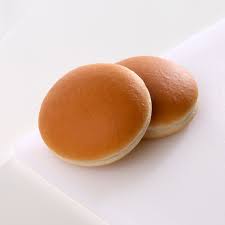记忆方法
bun............绑.......................髻(绑个发髻)
2. bunch => bun.
3. bunny => bun.
4. steamed bun 馒头; steamed stuffed bun 包子
2. bunch => bun.
3. bunny => bun.
4. steamed bun 馒头; steamed stuffed bun 包子
中文词源
bun 圆面包
拟声词,原指头上被敲出的肿块。后词义戏剧般的指代各种圆形小物体。如小面包,圆发髻,屁股,兔子等。
英语词源
- bun
-
bun: [14] The word bun first crops up in 1371, in an Anglo-Latin document relating to different types of bread. Its origins, however, are completely shrouded in mystery. Equally obscure, but presumably unrelated, is another word bun, which in the 16th century meant ‘squirrel’. By the 19th century we find it being used for ‘rabbit’, and it survives in its familiar form bunny.
- bun (n.)
- late 14c., origin obscure, perhaps from Old French buignete "a fritter," originally "boil, swelling," diminutive of buigne "swelling from a blow, bump on the head," from a Germanic source (compare Middle High German bunge "clod, lump"), or from Gaulish *bunia (compare Gaelic bonnach). Spanish buñelo "a fritter" apparently is from the same source. Of hair coiled at the back of the head, first attested 1894. To have a bun in the oven "be pregnant" is from 1951.
The first record of buns in the sense of "male buttocks" is from 1960s, perhaps from a perceived similarity; but bun also meant "tail of a hare" (1530s) in Scottish and northern England dialect and was transferred to human beings (and conveniently rhymed with nun in ribald ballads). This may be an entirely different word; OED points to Gaelic bun "stump, root."
权威例句
- 1. She had pale thin yellow hair she pulled back into a bun.
- 她把一头稀疏的浅黄色头发向后梳,挽成了个圆髻。
- 2. She was sitting at the kitchen table eating a currant bun.
- 她正坐在餐桌旁,吃着葡萄干圆面包。
- 3. You cannot eat a bun in one bite.
- 你不能一口吃下一个面包。
- 4. She wore her hair in a bun.
- 她盘了个发髻。
- 5. John, I've something to tell you. I've a bun in the oven.
- 约翰, 我有事要告诉你, 我有喜了.

